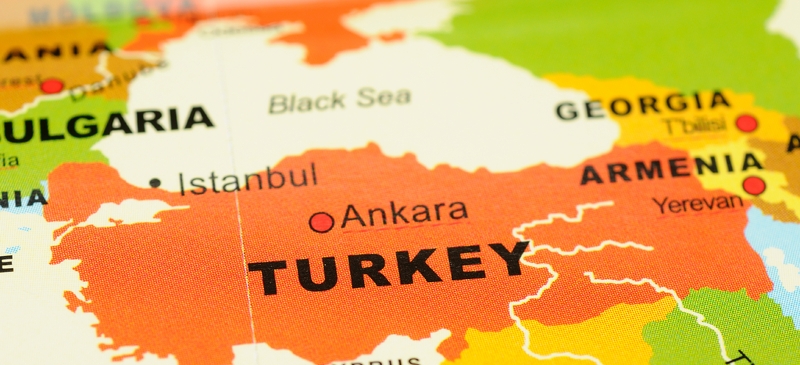
Why can't Europe and Turkey get along
Now that Turkey's local elections are out of the way, the ruling Justice and Development Party (AKP) is free to focus on economic and political reforms. Progress is needed, and quickly — not only to get the country through these turbulent economic times but also to avert the risk of a breakdown in EU -Turkey relations before the end of the year. The irony is that the relationship is most at risk at a time when the EU and Turkey need each other more than ever.
When Russian tanks trundled into Georgia in August 2008, it dawned on the European Union that it should have been paying more attention to the volatile Caucasus and Black Sea regions right at its doorstep. Turkey — strategically placed between the Balkans, Black Sea and Middle East — is fast becoming a big regional player. It's no surprise that President Obama is fulfilling his pledge to visit a Muslim-majority country within 100 days of taking office by dropping in on Turkey. The new Administration sees Ankara as a key ally in dealing with many of its biggest noneconomic issues: how to achieve long-lasting stability in Iraq, how to convince Iran to give up its nuclear ambitions, and even how to save Afghanistan. And if the EU is serious about defusing some of the conflicts that still simmer in the Caucasus, like the ones in Trans-Dniestria or Nagorno-Karabakh, it could do with Turkey's help too.
Turkey is also key to EU plans to diversify its energy supplies — another objective that looks more urgent after the Russia-Ukraine gas battle in January that left people in some EU countries freezing and factories idle. Currently, the EU gets more than 40% of its gas imports from just one company: Russia's giant Gazprom. In addition, almost all the gas that comes to Europe from the resource-rich Caspian flows through Gazprom's pipelines. Yet the long-planned Nabucco pipeline — designed to transport Azerbaijani, Turkmen and, maybe one day, Iranian and Iraqi gas to the EU through Turkey — is stuck at the planning stage.
There's a bigger problem: the relationship between Turkey and the EU is now so testy that even technical talks, like the ones over energy transit, are becoming politically charged. Turkey started negotiating EU membership in 2005. But progress has been slow for a number of reasons. There has been obstruction from France, Germany and a few other EU members who are not keen on a predominantly Muslim country of 70 million joining their club. There has also been political turmoil in Turkey, where the highest court only last year threw out a case on the closure of the ruling AKP. And there is the intractable dispute over the divided island of Cyprus, with the (Greek) Cypriot government consistently using its membership in the EU to block Turkey's advance.
Later this year, the Europeans will assess whether Turkey complies with its obligation to extend its customs union with the EU (in place since 1996) to Cyprus. Turkey will not do that unless there is tangible progress in ongoing talks about a political settlement on the island. But for this to happen, big EU countries will have to lean more heavily on the recalcitrant Greek Cypriots.
Turkey will have to do its bit to avert a crisis in EU-Turkey relations as well. The European Commission, in a November 2008 update on accession, told Turkey loud and clear that it no longer wanted to hear excuses for inaction. The EU wants Turkey to stop prosecuting critical writers and journalists; do more to protect the rights of women and minorities; improve the functioning of the economy, for example by getting a grip on industrial subsidies; and much else.
The local election result will come as a wake-up call for the government of Recep Tayyip Erdogan. The AKP had expected to exceed the 46% it gained in the 2007 parliamentary election. But it won just 39% support and fared particularly poorly in the Kurdish areas of southeastern Turkey, where Erdogan had campaigned most fiercely. The AKP used to do well in the southeast, but that was when it focused on delivering real improvements in political and cultural rights and economic conditions (often driven by the EU accession process) rather than brandishing nationalist slogans.
What both the EU and Turkey lack is vision. Accession-skeptics on both sides tend to take today's EU (still digesting the 2004 and 2007 enlargements), add today's Turkey (sometimes prickly as it struggles to solidify its democracy) and then conclude that this could never work. But by, say, 2020 both Turkey and Europe will hopefully have changed in ways that make them a perfect fit. To throw away that historic opportunity would be a mistake of historic proportions.
